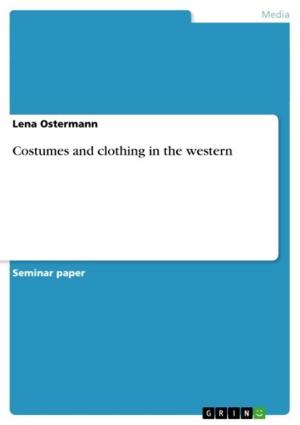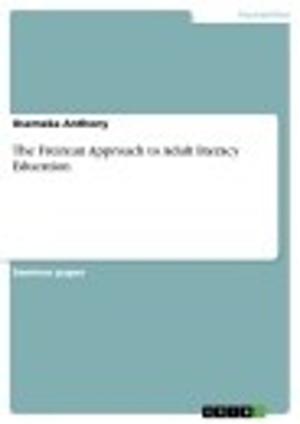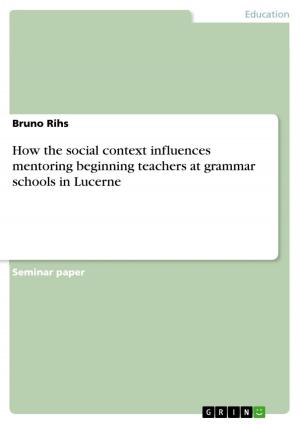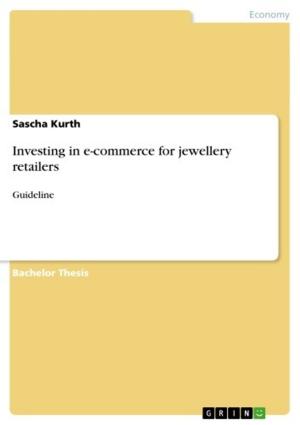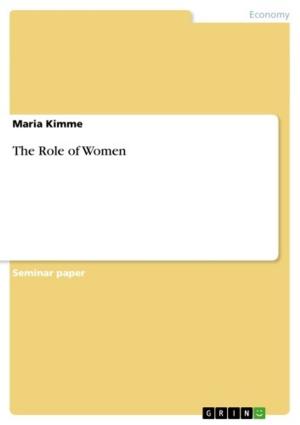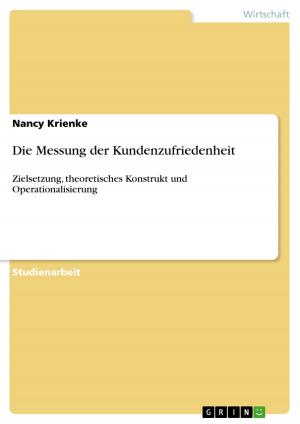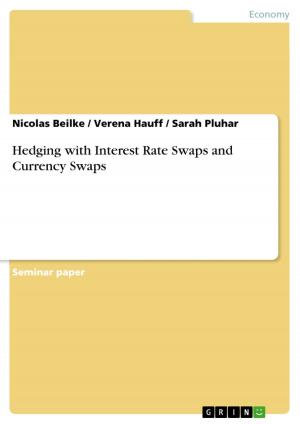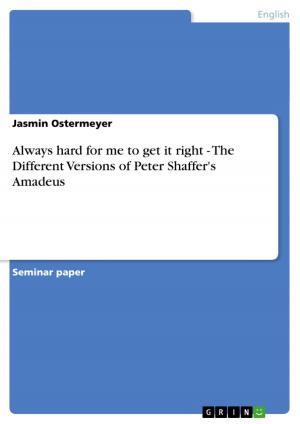Nation and Culture: 'Bra Boys' (2007)
How does the documentary 'Bra Boys' (2007) represent 'Australia' or the Australian character with consideration to landscape/location?
Nonfiction, Entertainment, Performing Arts, Film| Author: | Annika Onken | ISBN: | 9783640476053 |
| Publisher: | GRIN Publishing | Publication: | November 20, 2009 |
| Imprint: | GRIN Publishing | Language: | English |
| Author: | Annika Onken |
| ISBN: | 9783640476053 |
| Publisher: | GRIN Publishing |
| Publication: | November 20, 2009 |
| Imprint: | GRIN Publishing |
| Language: | English |
Essay from the year 2009 in the subject Film Science, grade: 2, University of Queensland, language: English, abstract: The idea of the beach has been constantly changing since the first European settlers arrived at the Australian shore. Beaches are omnipresent in and an integral part of Australia since the country is an island or as Huntsman puts it: '[...] Australia is a nation contained within a beach.' (5) The documentary Bra Boys begins with an historical flashback to the arrival of Captain James Cook in 1770 at Bondi Beach in Sydney. Native inhabitants have been using the beach for different purposes as for example fishing and bathing way before the English land claims. The European way of thinking about the beach and how to use it resulted in various changing ideas during the decades. After a long period of 'legal prohibitions and policing' (Huntsman 109) regarding how and where to bath, free access to Australian beaches was granted by the middle of the twentieth century due to the 'spread of suburban development and public transport' (Huntsman 109). By then the beach had already become 'a symbol of Australianess' (Huntsman138). Surfing as part of this beach culture was introduced to Australia around 1956 and as well had to undergo changes as to how society looked at it. The main characters in the documentary, the Abberton Brothers, grow up in the Sydney suburb Maroubra, which appears as a socially unstable environment of drugs and domestic violence. All four boys passionately surf which helps them to cope with a disfunctional family background. The surf community of the 'Bra Boys' functions as a second family which has its 'home' at the beach. Koby Abberton says: 'The beach was our life. That is all we had.' This quotation shows the strong connection with the beach landscape. Another member of the 'Bra Boys' states: 'This was our little place.' The beach is perceived as possession. Another example of this is the naming of a breaking wave at 'Cape Solander' as 'ours'.
Essay from the year 2009 in the subject Film Science, grade: 2, University of Queensland, language: English, abstract: The idea of the beach has been constantly changing since the first European settlers arrived at the Australian shore. Beaches are omnipresent in and an integral part of Australia since the country is an island or as Huntsman puts it: '[...] Australia is a nation contained within a beach.' (5) The documentary Bra Boys begins with an historical flashback to the arrival of Captain James Cook in 1770 at Bondi Beach in Sydney. Native inhabitants have been using the beach for different purposes as for example fishing and bathing way before the English land claims. The European way of thinking about the beach and how to use it resulted in various changing ideas during the decades. After a long period of 'legal prohibitions and policing' (Huntsman 109) regarding how and where to bath, free access to Australian beaches was granted by the middle of the twentieth century due to the 'spread of suburban development and public transport' (Huntsman 109). By then the beach had already become 'a symbol of Australianess' (Huntsman138). Surfing as part of this beach culture was introduced to Australia around 1956 and as well had to undergo changes as to how society looked at it. The main characters in the documentary, the Abberton Brothers, grow up in the Sydney suburb Maroubra, which appears as a socially unstable environment of drugs and domestic violence. All four boys passionately surf which helps them to cope with a disfunctional family background. The surf community of the 'Bra Boys' functions as a second family which has its 'home' at the beach. Koby Abberton says: 'The beach was our life. That is all we had.' This quotation shows the strong connection with the beach landscape. Another member of the 'Bra Boys' states: 'This was our little place.' The beach is perceived as possession. Another example of this is the naming of a breaking wave at 'Cape Solander' as 'ours'.



